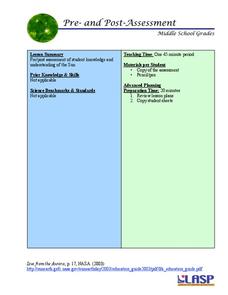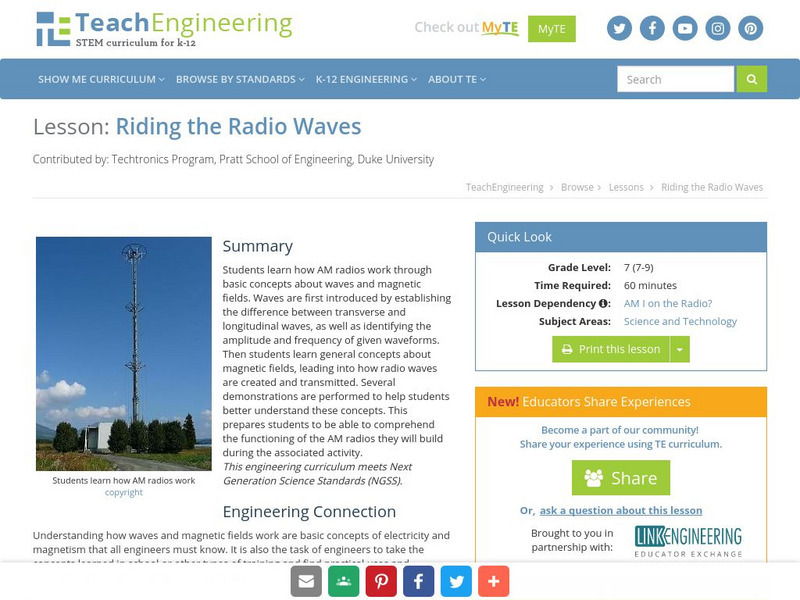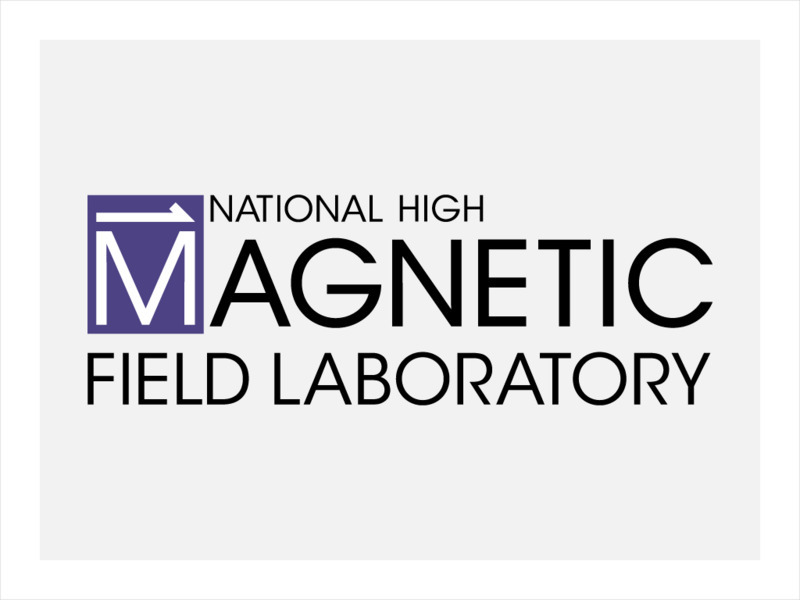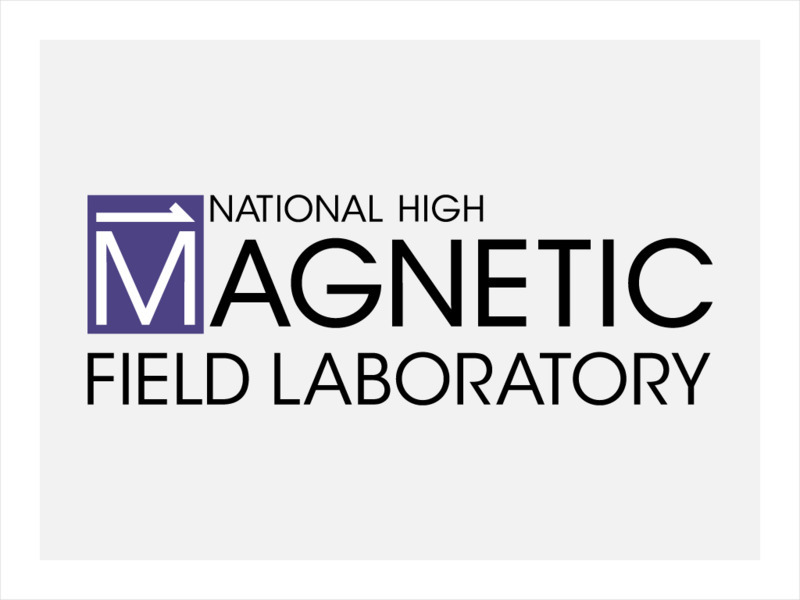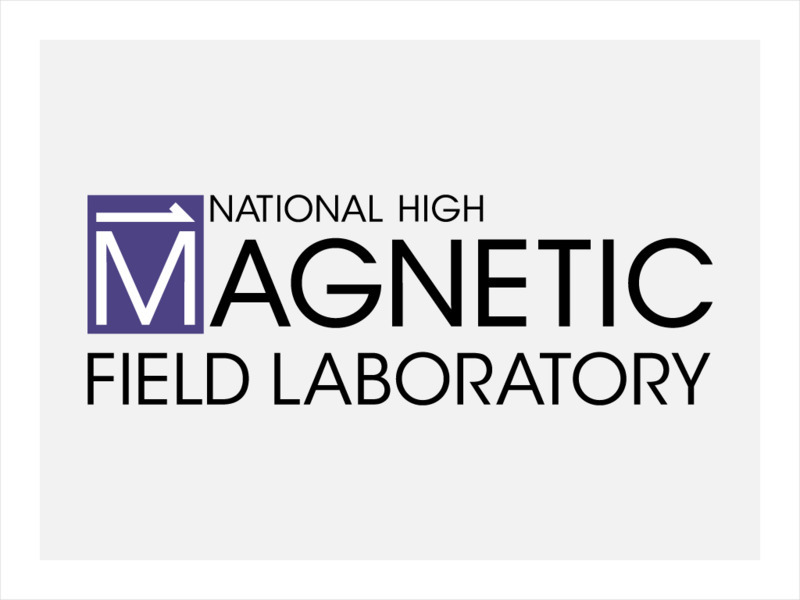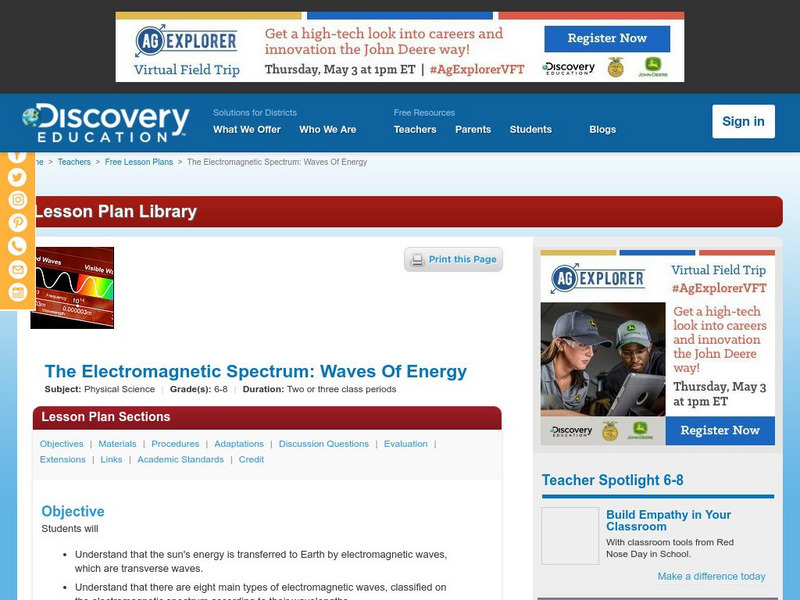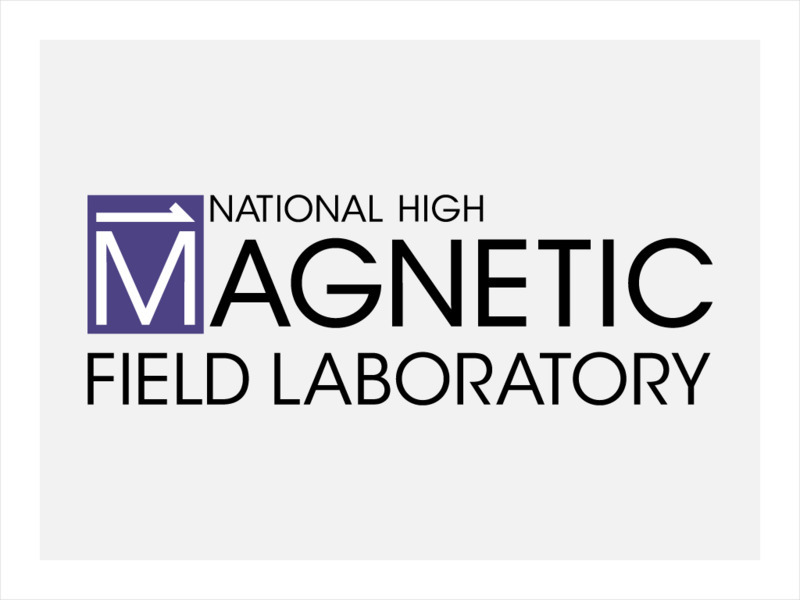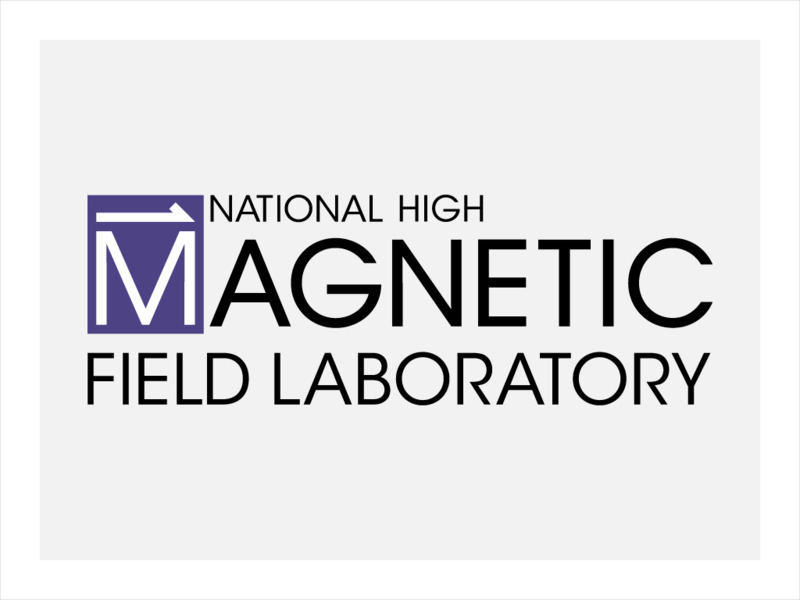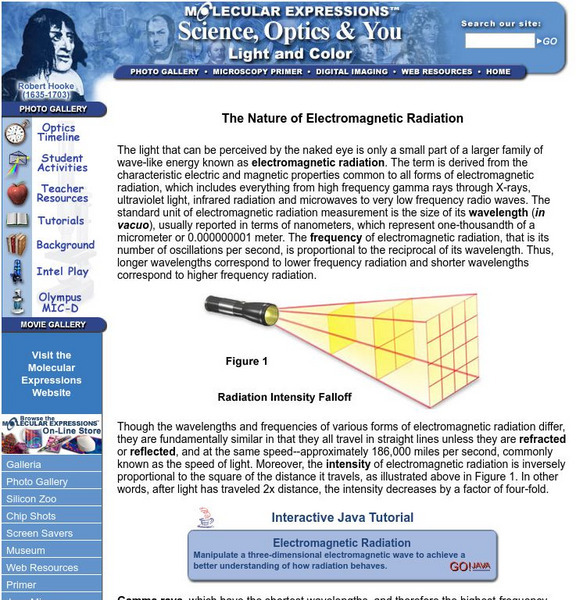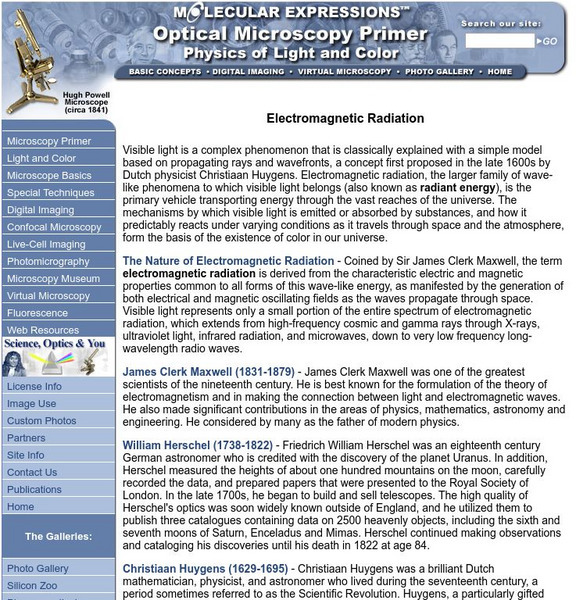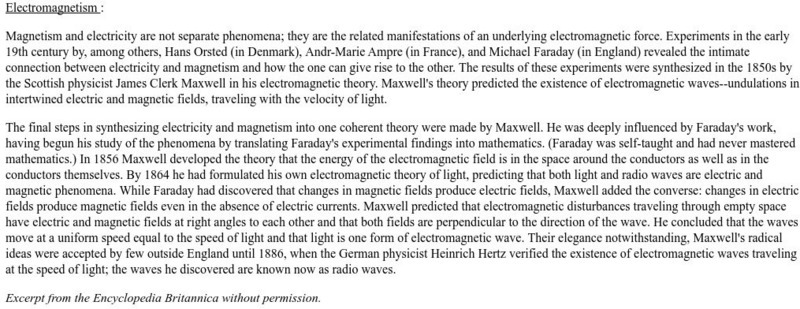NASA
The Electromagnetic Spectrum
Did you realize the visible light spectrum is less than three percent of the electromagnetic spectrum? A hands-onlesson includes five activities and experiments for scholars to explore and discover many advanced science concepts. They...
Santa Monica College
Flame Tests of Metal Cations
Scientists used flame tests to identify elements long before the invention of emission spectroscopy. Young chemists observe a flame test of five metal cations in the fourth lesson plan of an 11-part series. Individuals then work...
PHET
The Sun: Pre- and Post-Assessment
Want to see how far pupils have come since the beginning of the unit? This activity is designed to be a pre- and post-assessment for a unit on the Sun. The first in a series of 18 that can be combined to form a complete unit. Two...
Curated OER
Unraveling the Mysteries of Objects in Space
Learners study emitted and absorbed light, and label each type of spectrum. They identify elements by their spectral signatures and use a spectroscope.
Curated OER
WiTricity Explained
Students explain how electricity is transferred from source to load without actual wires connecting the two. In this physics instructional activity, students explore how wireless electricity was discovered. They cite practical...
Curated OER
Applied Science - Physics Pre-Lab
Students describe the science of physics. In this Physics lesson plan, students observe examples of physics within their classroom. Students create a definition for physics.
Nikola Tesla documentary student worksheet
PBS documentary: Tesla - Master of Lightning; this worksheet will keep the students engaged while watching this excellent documentary about Tesla. The documentary can be found on Netflix or YouTube. It will take two class periods to...
Curated OER
Explorit's Physics Quiz (Level 1)
In this online interactive physics quiz activity, students respond to 5 questions. Students may check their answers for accuracy.
Curated OER
Can You See the Music?
Fourth graders examine the makeup of the electromagnetic spectrum and how the various forms of EMRs are similar and different from each other. They, in pairs, solve problems from worksheets imbedded in this lesson plan.
TeachEngineering
Teach Engineering: Riding the Radio Waves
In this instructional activity students learn how AM radios work through basic concepts about waves and magnetic fields. Waves are first introduced by establishing the difference between transverse and longitudinal waves, as well as...
National High Magnetic Field Laboratory
Magnet Academy: Heinrich Hertz
The discovery of radio waves, which was widely seen as confirmation of James Clerk Maxwell's electromagnetic theory and paved the way for numerous advances in communication technology, was made by German physicist Heinrich Hertz. In the...
Other
Harvard Medical School: Magnetic Resonance Imaging (Mri)
This Beth Israel Deaconess Medical Center site offers a comprehensive look at MRI exam phases, preparation, technology, equipment, safety, and research. Images and labeled diagrams are also provided on this site.
National High Magnetic Field Laboratory
Magnet Academy: Karl Jansky
Karl Jansky discovered extraterrestrial radio waves while investigating possible sources of interference in shortwave radio communications across the Atlantic for Bell Laboratories, and is often known as the father of radio astronomy....
National High Magnetic Field Laboratory
Magnet Academy: Magnetic Resonance Imaging Mri
In MRI, magnetic fields and radio wave pulses combine to get a unique, and medically beneficial, response from your body's hydrogen atoms. Take a peek in this tutorial.
National High Magnetic Field Laboratory
Magnet Academy: Lodge's Experiment
Sir Oliver Lodge's experiment demonstrating the first tunable radio receiver was an important stepping stone on the path toward the invention of a practical radio.
Discovery Education
Discovery Education: The Em Spectrum: Waves of Energy
Students are introduced to the electromagnetic spectrum through this group research activity. Each group investigates a different wavelength range within the em spectrum and reports back to class. Discussion ideas also included.
WebMD
Medicine Net: Magnetic Resonance Imaging
This site from MedicineNet.com gives an MRI description, why they're performed, risks, and patient preparation. A thorough explanation of the process is provided.
National High Magnetic Field Laboratory
Magnet Academy: Timeline of Electricity and Magnetism: 1880 1889
Nikola Tesla and Thomas Edison duke it out over the best way to transmit electricity and Heinrich Hertz is the first person (unbeknownst to him) to broadcast and receive radio waves.
National High Magnetic Field Laboratory
Magnet Academy: John Daniel Kraus
For a man whose career involved the entire known universe, John Kraus had a remarkably insular upbringing. He was born and raised in Ann Arbor, Michigan, and earned his bachelor's, master's and doctoral degrees in physics, all at the...
Florida State University
Florida State University: Nature of Electromagnetic Radiation
This site from The Florida State University provides an informational page on electromagnetic radiation discusses the characteristics and properties of its many forms including X-rays, gamma rays, ultraviolet radiation, infrared...
Florida State University
Florida State University: Molecular Expressions: Electromagnetic Radiation
This Florida State University page introduces light as an electromagnetic wave and discusses the frequency and wavelength range of the various regions of the electromagnetic spectrum. Includes links to some interactive Java applets.
University of Oregon
University of Oregon: Electromagnetism
A solid summary from the University of Oregon of the work of James Maxwell Clerk, Michael Faraday, and others in the field of electric and magnetic phenomena. This is a fine essay.
NASA
Nasa: Oersted and Ampere Link Electricity
NASA provides a nice blending of the achievements of three scientists, Oersted, Ampere, and Maxwell. This done by NASA-sponsored International Solar-Terrestrial Physics group. Lots of pictures, diagrams, and scientific explanation. Good...




